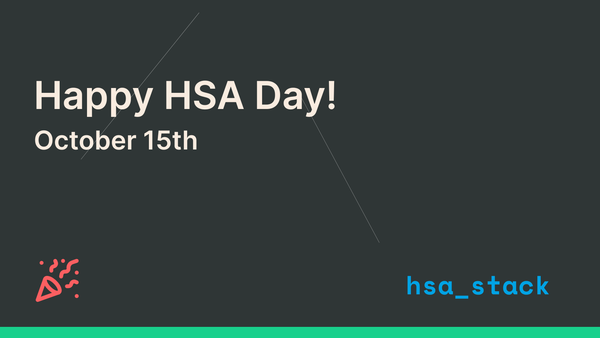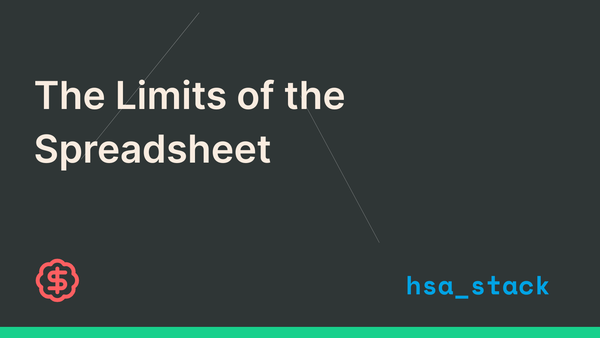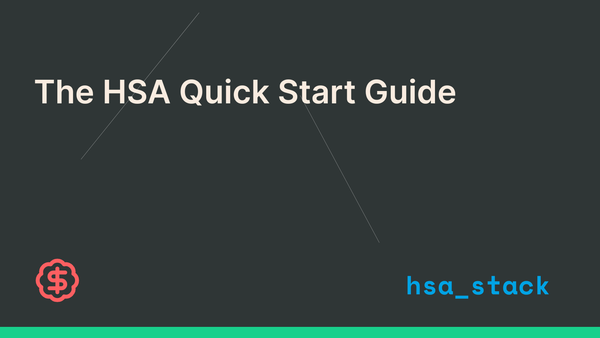Your HSA Strategy vs. Your Provider's Business Model: A Clear-Eyed Look
Why does your HSA provider push for immediate spending? Their business model relies on it. Learn how swipe fees and interest on your cash incentivize them, and why a delayed reimbursement strategy is the smarter way to grow your wealth tax-free.

You see your Health Savings Account (HSA) as a long-term investment vehicle. You're diligently paying for medical expenses out-of-pocket to allow your invested funds to grow tax-free, a powerful strategy known as delayed reimbursement.
Yet, the tools and messages from your HSA provider seem to push you in the opposite direction—toward swiping your HSA debit card and reimbursing yourself immediately.
This isn't an accident. It’s an alignment with their business model. To make the best decisions for your own financial growth, it’s helpful to understand the mechanics of how your provider generates revenue.
How Your HSA Provider Really Makes Money
While it varies by provider, the business of HSAs generally revolves around three core revenue streams. Most of these are maximized when you use your account for frequent, immediate transactions, not long-term investing.
- Debit Card Swipe Fees (Interchange Revenue) When you pay for a medical expense with your HSA debit card, the merchant pays a small percentage of the transaction amount to the card network and the issuing bank. Your HSA provider receives a piece of this fee. While small on a per-transaction basis, these interchange fees add up significantly across thousands of users and millions of transactions. This model directly incentivizes providers to encourage you to use your card for every qualified expense.
- Interest on Your Cash (Net Interest Margin) As detailed in industry research, a major profit center for HSA custodians is the interest earned on uninvested cash sitting in accounts. They hold your cash deposits and earn interest on them at market rates, while paying you, the account holder, a much lower (often negligible) rate. The difference, or "net interest margin," is their profit. The more cash held in accounts rather than in investments, the more they earn.
- Account & Administrative Fees This is the most straightforward revenue stream. It includes monthly or annual maintenance fees, fees for falling below a minimum cash balance (which can deter users from investing their full balance), and sometimes, fees to access investment platforms. These fees are most common in accounts designed for spending and transacting, not necessarily for optimizing investment growth.
Why This Favors an "Immediate Use" Strategy
Looking at these three revenue models, a clear pattern emerges. Their profitability hinges on users treating their HSAs like a checking account rather than a 401(k):
- Interchange fees require you to swipe the card.
- Net interest margin is most profitable with high cash balances that aren't being invested.
- Account fees often penalize users who want to invest every dollar.
This is why their platforms are built for transactions. The user experience is designed to make it easy to pay and reimburse now, reinforcing a cycle of spending that is good for their business model.
Your Growth Strategy is Still the Optimal One
Understanding this shouldn't discourage you. It should empower you. The delayed reimbursement strategy—where you pay out-of-pocket and allow 100% of your HSA funds to stay invested and compound tax-free—remains one of the most effective wealth-building tools available.
The primary obstacle to this superior strategy has always been execution. The fear of losing receipts or failing an IRS audit stops many from even trying.
The key is not to abandon the strategy, but to adopt a system that makes it foolproof. Impeccable, seamless, and audit-ready record-keeping is the foundation that turns this advanced financial strategy from a source of anxiety into a confident and powerful engine for your future wealth.
Ready to build a rock-solid foundation for your HSA strategy? Learn more about creating an organized, audit-ready system for your medical expenses.




